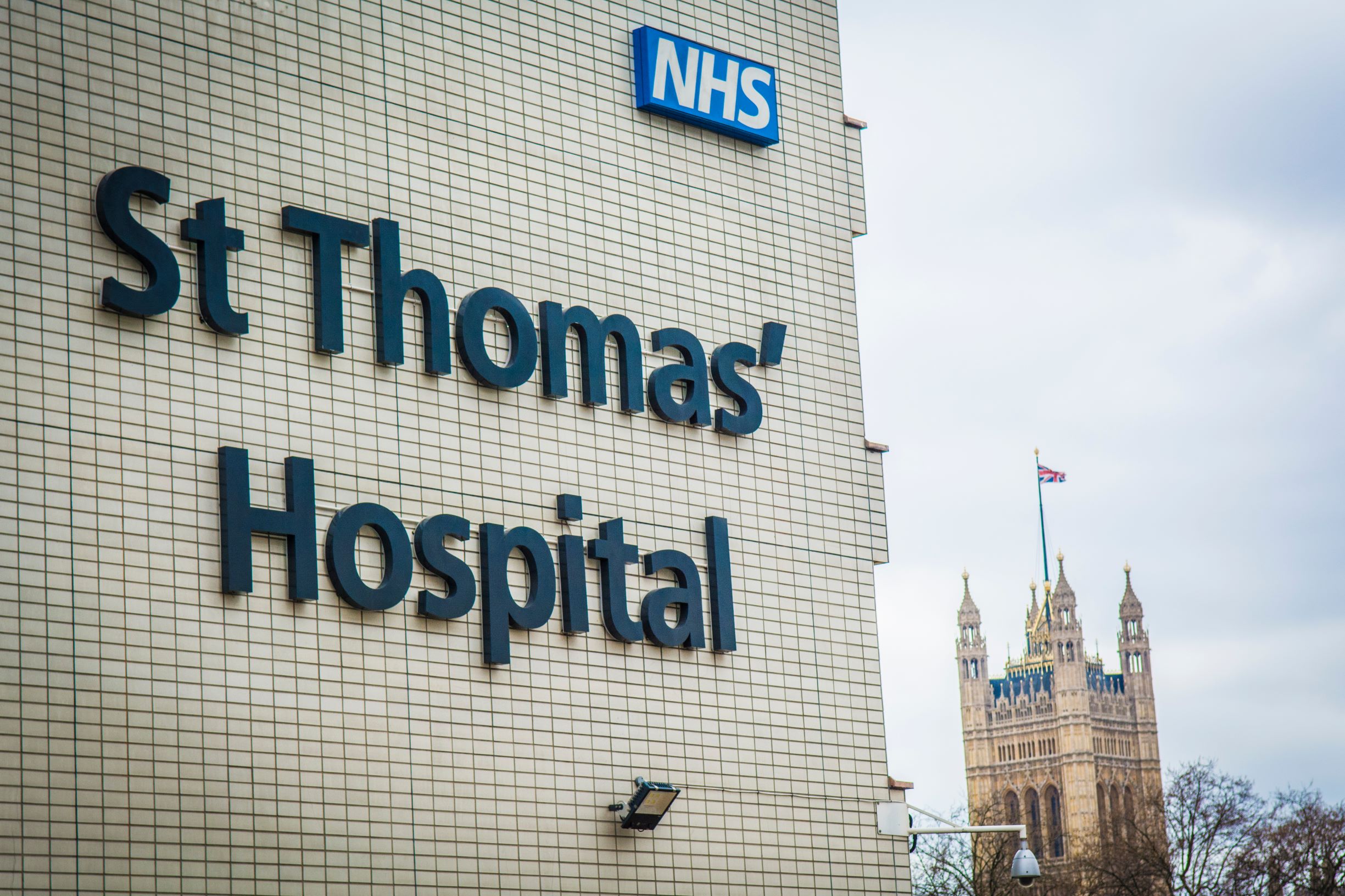“Our main drive is to get people home,” says Professor Nick Hart of St Thomas’s Hospital

Sarah Cartledge, Group Editor of World Healthcare Journal and Hospital Times contributor, recently spoke to Professor Nick Hart, Clinical Director (chronic respiratory failure, weaning and home ventilation) at Guy’s at St Thomas’ Hospital NHS Foundation Trust.
One of those who headed home thanks to the expertise of Professor Nick Hart was British Prime Minister Boris Johnson. Now, Mr Johnson and his partner Carrie Symonds have paid tribute to his hospital doctors, Professor Nick Hart and Dr Nick Price, by naming their son after them.
In a statement the two doctors wished the new family every health and happiness, saying: “We are honoured and humbled to have been recognised in this way, and we give our thanks to the incredible team of professionals who we work with at Guy’s at St Thomas’ and who ensure every patient receives the best care. ”
The Lane Fox Respiratory Service based at Guys & St. Thomas’ Hospital in London treats the most complex patients with chronic respiratory failure. One of the oldest respiratory services in the UK. The service incorporates both the Clinical Unit as well as the Clinical Respiratory Physiology Research Centre.
The purpose-built clinical service has a 34 inpatient weaning and home mechanical ventilation (HMV) capacity and currently has 1,700 patients on the HMV programme. Professor Hart and his team treat the most complex respiratory cases in the UK and their expertise is sought after throughout the world.
The service investigates chronic respiratory failure resulting from a variety of causes including chronic obstructive pulmonary disease, neuromuscular disease, chest wall disease, spinal cord injury, brain injury and obesity.
There is a successful weaning programme to liberate patients from invasive ventilation following critical illness. “Our main drive is to get people home, rather than keeping them in the hospital,” says Professor Hart.
Post-polio syndrome programme
Another innovation is the post-polio syndrome rehabilitation programme, the only one of its kind in the UK. Running three times a year, it provides a comprehensive service for patients suffering from the effects of poliomyelitis as well as post-polio syndrome.
Delivered with a strong educational focus, the programme aims to advise on the management of post-polio syndrome, to help improve quality of life, coping strategies, establishing a bespoke exercise programme for each patient and help participants understand their symptoms, and reduce the impact on day to day life.
“Covid-19 is this generation’s polio,” Professor Hart says. “Patients have mild, moderate and severe illness. Large numbers of patients will have physical, cognitive and psychological disability post-critical illness that will require long term management. We must plan ahead. ”
Outreach Programme
The Lane Fox Respiratory Service was established in 1989 when the Lane Fox Respiratory Unit Patients Association (LFRUPA) raised £1m to develop and build the unit at St Thomas’ Hospital. Baroness Felicity Lane Fox, great aunt of Baroness Martha Lane Fox, and Ted Gates MBE with Dr Geoffrey Spencer OBE ensured that such a unit was built to support complex respiratory patients.
Dr Spencer’s work laid the foundations of the Lane Fox Respiratory Service’s successful outreach programme, consisting of a home assessment clinic, critical care weaning, nursing home outreach network and paediatric to adult transitional care. The outreach team liaises closely with ICUs in other hospitals across the UK. Professor Hart is recognised as an expert in the field and regularly provides opinion when other units need independent advice on very complex cases.
The Outreach Programme also supports an increasing number of tracheostomy-ventilated patients. Tracheostomy is where an artificial airway is created in the patient’s throat, bypassing the usual route through the mouth and vocal cords, and passing into the airways to ventilate the lungs.
“We have more than 100 tracheostomy-ventilated patients in the community. Over half are very frail and cannot come to the hospital to have their tracheostomy changed, so we actually go into their homes to change the tracheostomy tube,” says Professor Hart.
“The aim is to wean patients off the tracheostomy ventilator. Keeping a patient on a ventilator costs the NHS up to £1,400 per day, so by weaning them off within a few weeks not only significantly improves the patient’s health-related quality of life, but also reduces the cost of their care. It is truly cost-effective care.”
Technical support
The service is well supported with six consultants and 52 nurses, as well as three paediatric neurology consultants, one cardiologist and two gastroenterology consultants, a urologist, a neurologist, a spinal surgeon, two anaesthetists, five physiotherapists, two occupational therapists, a dietician, a speech and language therapist and a rehabilitation consultant. There is also a substantial technical team, with six in-house technicians working around the clock on the equipment.
“We have embedded research into the clinical service, as well as a PhD programme, so we have a high-quality team,” says Professor Hart. “We provide 24-hour clinical and technical support, which is really important for this group of patients – the importance of this can’t be underestimated. ” The unit also supports the hospital’s paediatric services with the Paediatric Home Mechanical Ventilation programme.
“A lot of our early life patients have inherited genetic disorders or acquired brain injuries that require long-term tracheostomy ventilation,” he adds.
